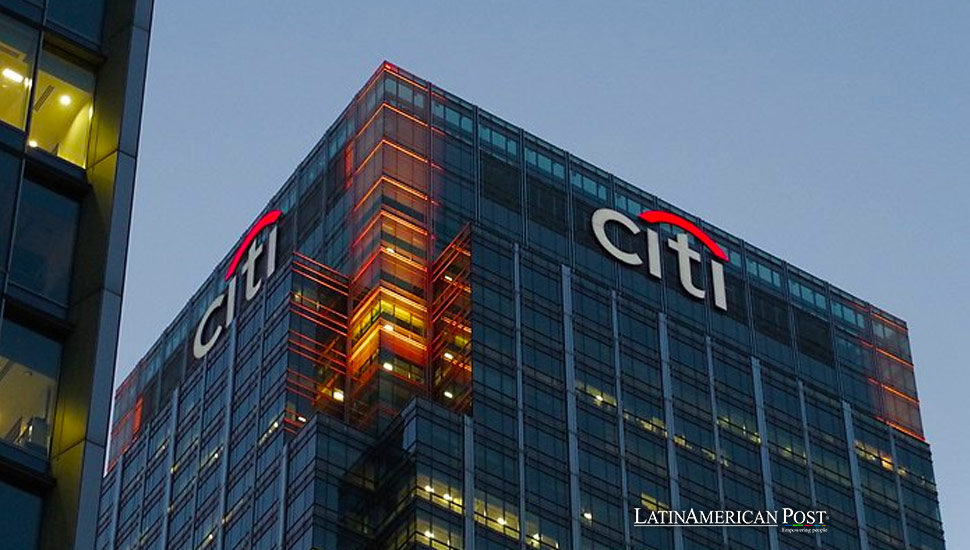Citigroup’s Strategic Exit from Haiti and Its Impact on Latin America

Citigroup is winding up its operations in Haiti after over five decades, citing weak demand and lower international banking activity. This decision aligns with Citi’s broader strategic review focusing on core markets.
Citigroup has announced it will cease operations in Haiti due to weak demand from institutional clients and reduced international banking activity. This marks the end of its presence in the country after more than fifty years. The exit is part of a strategic review and is not expected to have a significant economic impact on Citi, the bank stated.
Citi, one of the largest banks in the United States, has been exiting non-core markets since CEO Jane Fraser took the helm in 2021. This move is part of a broader strategy to streamline operations and concentrate on areas that offer the best returns. As part of this strategic overhaul, Citi also plans to exit its consumer unit in Mexico, set for an initial public offering in 2025.
To keep pace with peers whose profitability has outstripped Citi’s, the bank has been overhauling its operations and focusing on businesses that promise the best returns. This realignment is crucial for Citi as it seeks to enhance its profitability and strengthen its market position. While a significant decision, the exit from Haiti is a small part of this larger strategy.
Citigroup’s departure from Haiti involves voluntarily surrendering its banking license with the approval of Banque de la République d’Haiti, the country’s central bank. However, international banking and correspondent banking services will continue for existing clients. Citi has not disclosed the number of employees affected by this move but has reiterated its commitment to Latin America.
Impact on Haiti and the Caribbean
Citi’s exit from Haiti reflects the broader economic challenges facing the Caribbean nation. Haiti has long struggled with political instability, financial hardship, and infrastructural deficiencies, hampered business operations and deterred foreign investment. Citi’s decision underscores international banks’ difficulties in maintaining operations in such environments.
For Haiti, exiting a significant financial institution like Citigroup could have ripple effects on the local banking sector and the broader economy. While Citi’s direct economic impact might be limited, its departure could signal a need for more confidence in Haiti’s financial prospects, potentially discouraging other foreign investors. This move also highlights the need for more robust economic reforms and stability to attract and retain international businesses.
Despite these challenges, Citi’s continued provision of international and correspondent banking services for existing clients indicates that the bank sees value in maintaining some engagement with the Haitian market. This ongoing relationship could mitigate some of the negative impacts of the bank’s exit.
While Citigroup is withdrawing from Haiti, it remains committed to the broader Latin American market. The bank’s strategic exit from specific non-core markets aims to reallocate resources to more profitable regions and business segments. Latin America continues to be a significant region for Citi, offering numerous growth opportunities in various sectors.
Citi’s planned exit from its consumer unit in Mexico is another strategic move to optimize its operations. The Mexican consumer unit’s initial public offering in 2025 is expected to unlock value for the bank and its shareholders, allowing Citi to focus on its core strengths. Mexico remains a vital market for Citi, and its restructuring efforts are geared towards enhancing its regional competitiveness and profitability.
With its diverse economies and growing financial needs, Latin America presents a fertile ground for Citi’s banking and financial services. The region’s increasing integration into the global economy and its burgeoning middle class offer significant opportunities for growth in areas such as consumer banking, corporate banking, and wealth management.
Navigating Strategic Changes
While Citigroup’s strategic exit from Haiti is a significant decision, it is part of a broader realignment aimed at focusing on core markets and enhancing profitability. This move reflects the challenges and opportunities of navigating diverse and complex global markets. For Haiti, Citi’s departure underscores the need for economic stability and reforms to attract and retain international investment.
Citi’s commitment to Latin America remains strong, with strategic initiatives aimed at optimizing its operations and leveraging growth opportunities in the region. The planned IPO of its Mexican consumer unit is a testament to Citi’s strategic focus on unlocking value and enhancing its market position.
Also read: Haiti’s Market Vendors and Buyers Navigate Trash and Chaos
As Citigroup continues to navigate its strategic changes, its decisions will undoubtedly shape its future trajectory and influence its role in the global financial landscape. The bank’s ability to adapt to changing market dynamics and focus on core strengths will drive its long-term success.





